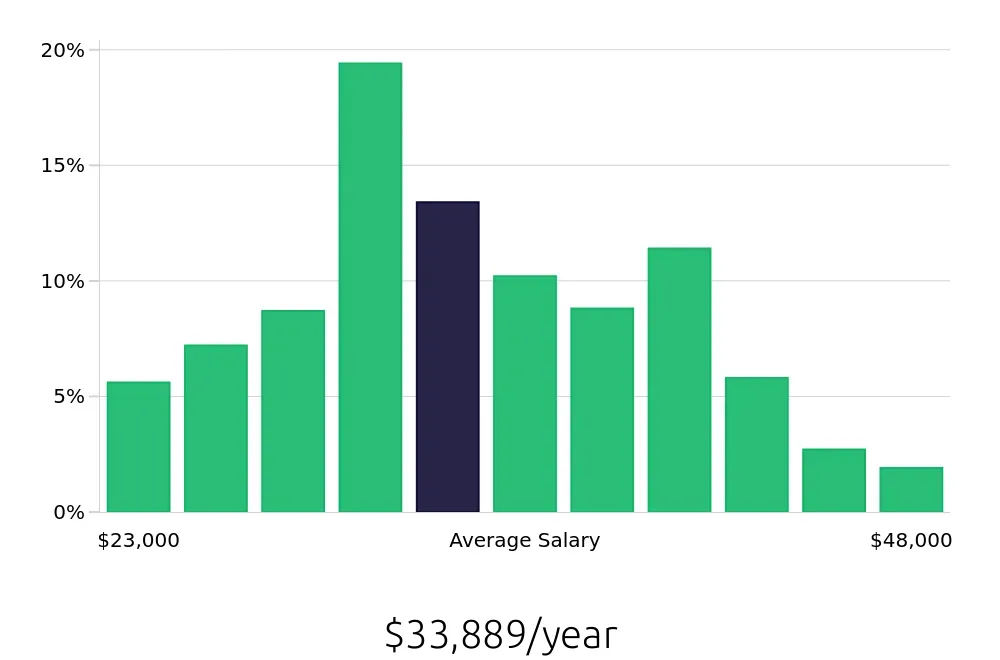Position
Overview
A Baker crafts delicious baked goods that people enjoy every day. They mix ingredients and use tools like mixers and ovens. Bakers work in kitchens and follow recipes to make items such as bread, cakes, cookies, and pastries. They often decorate their creations with icing or toppings. Bakers ensure their products look appealing and taste great.
Bakers must stay organized and pay close attention to details. They measure ingredients carefully and keep track of baking times. Bakers also keep their work areas clean and safe. This job requires creativity and the ability to follow instructions. Bakers may work in bakeries, restaurants, or other food service places. Their main goal is to make tasty treats that people love.
Becoming a baker involves a series of steps that combine passion with practical skills. Begin by cultivating an interest in baking. Engage in baking as a hobby to understand the craft better. Try different recipes and techniques to discover what you enjoy most.
Next, gather the necessary tools and ingredients. Invest in essential baking equipment like mixers, ovens, and baking sheets. Stock up on basic ingredients such as flour, sugar, and eggs. Practice regularly to build your skills and refine your techniques.
Consider formal education to enhance your expertise. Enroll in baking courses or culinary school. These programs offer structured learning and practical experience. Gaining formal training can set you apart in the competitive baking industry.
Build a portfolio to showcase your work. Document your baking projects with photos and descriptions. Create a website or an online portfolio to display your skills and creativity. Networking with other bakers can also lead to job opportunities and collaborations.
Seek employment in a bakery or patisserie. Apply to local bakeries, cafes, or restaurants. Gain experience under the guidance of professional bakers. Working in a professional environment helps develop your skills and understand the demands of the job.
Interested in a career in baking? This rewarding path offers a mix of creativity and technical skill. Typically, aspiring bakers start with formal education. A postsecondary nondegree award usually takes about one to two years to complete.
Many bakers gain valuable experience through an apprenticeship. This hands-on training can last anywhere from one to four years. During this period, bakers learn the trade by working under a professional. Some bakers may also choose to combine their education with apprenticeship hours. This path can shorten the overall time to mastery. With dedication and practice, one can become a skilled baker and enjoy a fulfilling career in the industry.
We are seeking a skilled and creative Baker to join our team. The ideal candidate will be passionate about baking and dedicated to producing high-quality baked goods that meet our standards.
Responsibilities:
Qualifications
Being a baker is a rewarding career that combines creativity with technical skills. This profession involves creating delicious baked goods like bread, cakes, pastries, and more. Bakers work in various settings, from small bakeries to large restaurants and even supermarkets. They use their skills to prepare ingredients, mix batters, and monitor ovens to ensure the perfect final product. A baker’s work often involves long hours and standing for extended periods, but it can be immensely satisfying to see customers enjoy the treats they have made.
This career offers many benefits. Bakers enjoy a diverse work environment and the chance to create unique designs with their baked goods. They can specialize in areas like wedding cakes, bread, or pastries, giving them the chance to explore their interests deeply. The physical activity involved in baking can also be a plus, providing a sense of accomplishment at the end of a long day. However, it’s important to consider the challenges as well. The job can be demanding, with long hours and sometimes stressful conditions, especially during busy periods.
Here are some pros and cons to think about:
The job outlook for bakers is positive with an average of 33,800 job positions available each year, according to the Bureau of Labor Statistics (BLS). This number shows that bakers have many opportunities to find work. From 2022 to 2032, job openings for bakers are expected to grow by 4.9%. This growth suggests that more bakeries and food businesses will need bakers in the coming years.
For those considering this career, the average national annual compensation for bakers is $35,550. This means bakers can expect a steady income. The average hourly wage is $17.09, which provides a good rate of pay for the work done. These figures show that a career in baking can be financially rewarding. Bakers can look forward to a stable and decent income from their work.
Overall, the baking industry offers a promising future for job seekers. With steady job growth and a good income, it is an attractive field to enter. Those with a passion for baking and food can find both satisfaction and stability in this career.
